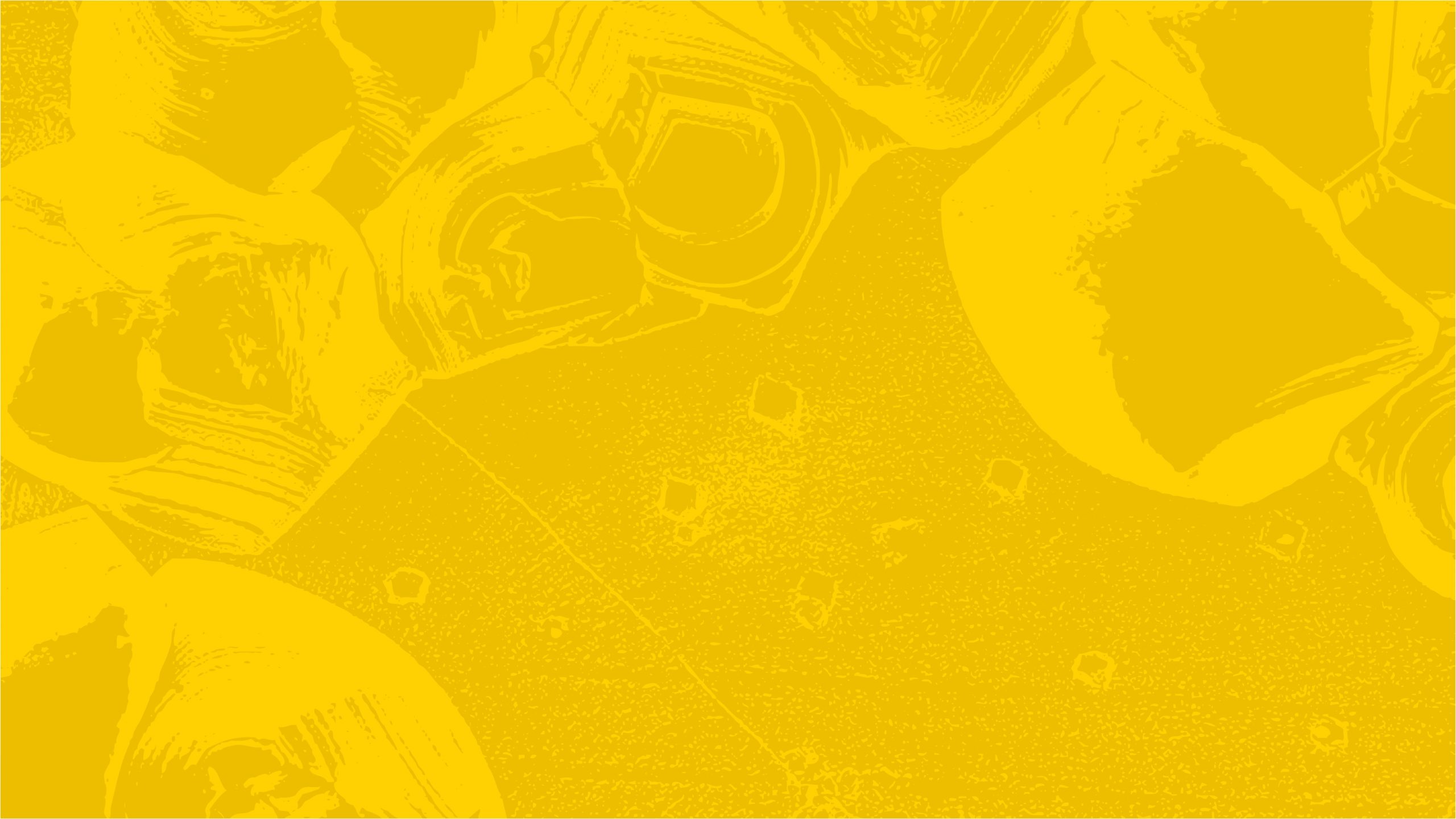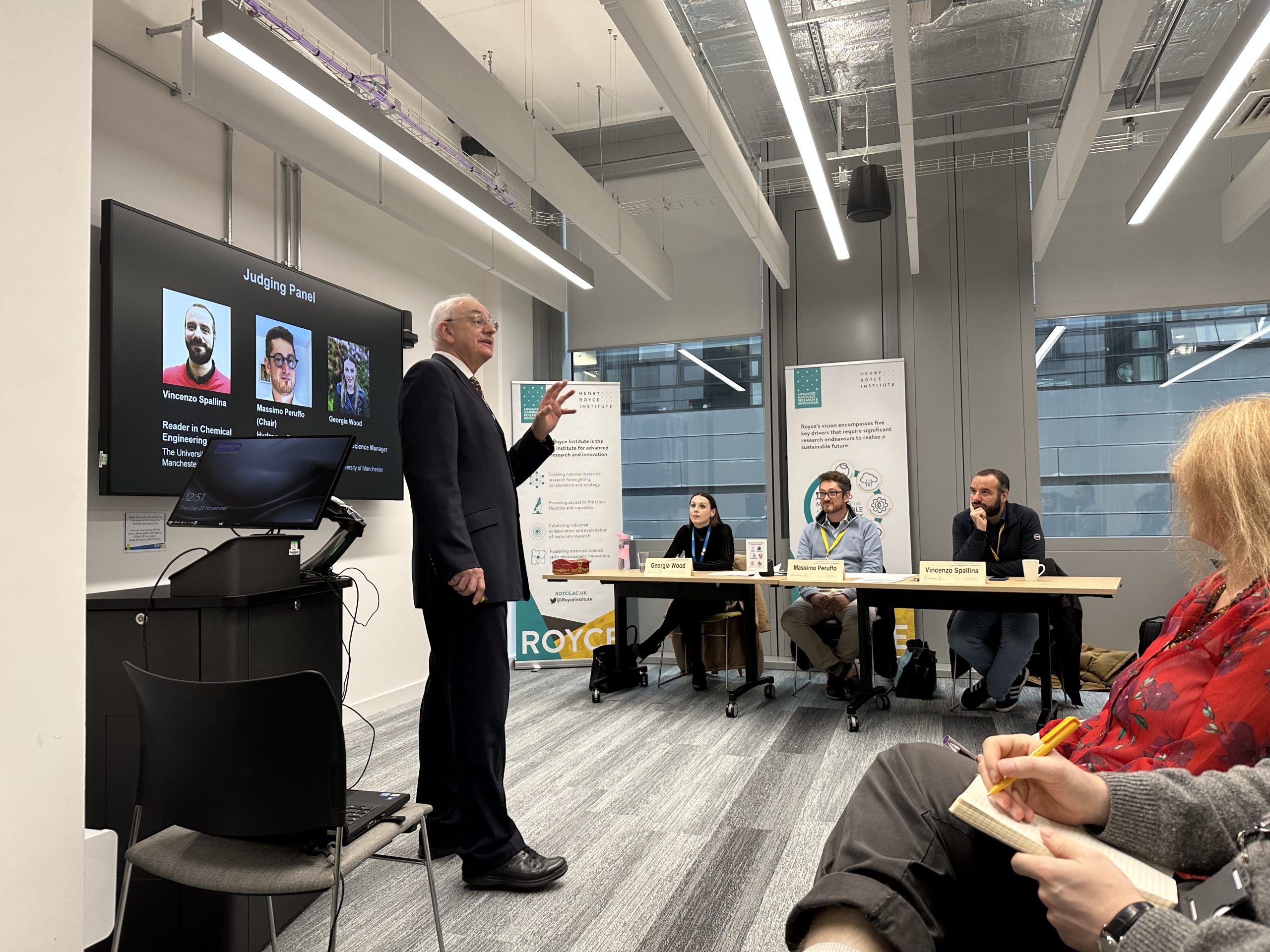The Royce PhD Research Sandpit was held at the Royce Hub Building on the 22nd and 23rd November 2024.
There were a total of 40 applications for 24 places, with successful participants chosen on the strength of their written submission and balanced to ensure representation of a variety of institutions and areas of research across materials science. The participants themselves represented 12 universities: Edinburgh, Birmingham, Loughborough, Warwick, Oxford, Cambridge, Strathclyde, Sheffield, Imperial, Queen Mary, Manchester, and Leeds.
The event began with a welcome dinner, on the evening of the 21st November. This allowed the participants time to meet each other in a more informal setting, as well as meet the organisers and facilitators including George Miller, Royce’s Student Engagement Manager; Tom Hancocks, Royce’s Training and Skills Manager; and Adrian West and Sophie Brown from Company of Mind.
The first day started with a talk from Professor Alice Larkin, of The University of Manchester’s Tyndall Centre for Climate Research, on “Surviving Sandpits” where she reflected on her previous experience of attending an EPSRC sandpit.
The sandpit’s Grand Challenge was then presented by Alexander de Bruin from Johnson Matthey, with him outlining the background and issues around the printing and characterisation of membranes for hydrogen fuel cells. This presented a multi-faceted problem, with challenges arising from the catalysts used, the checking of regular and consistent printing of the membranes, and the recyclability and sustainability of aspects of the process.
After the students were set the challenge, Company of Mind delivered a session on structured learning and the formation of ideas, before the students formed teams of 6 through a series of exercises to help them identify the strengths and weaknesses in themselves and their team.
For the remainder of the first day, the teams worked on their challenge presentations with help and critique offered by a group of mentors with expertise in fields relating to the challenge. These included Dimitris Spanakos from Johnson Matthey; Isabel Pazmino Mayorga, a research associate in Process Engineering at The University of Manchester; Matthew Lindley, an experimental officer in microscopy at The University of Manchester; and Henry Shine a patent attorney from law firm Wilson and Gunn.
The second day began with another session of facilitated learning that featured a “stakeholder” interview with the members of the other teams that acted as a perspective check. The teams then spent the morning consolidating their work and creating a presentation to share how they would address the Grand Challenge. The afternoon session involved each group delivering their presentations, judged by a panel of three experts: Massimo Peruffo, Hydrogen Technologies Characterisation and Data Manager at Johnson Matthey (chair); Georgia Wood, Materials Science Manager at bp-ICAM; and Vincenzo Spallina, Reader in Chemical Engineering at The University of Manchester.
With a number of ways to approach the challenge, and no “correct” answer due to the novelty of the problem, there was a great deal of variation between the solutions proposed by each team. Ideas presented included: fine tuning the number of spray coating nozzles to increase the rate of cells being produced, changing the solvents used for catalyst recovery for greater sustainability, and on-line X-ray compute tomography for faster analysis of the membranes on the production line, to name several.
All of the presentations were of high quality and met with positive remarks from the judging panel, who had £1000 worth of prize money to award as they saw fit as “seed funding”. This was distributed amongst the teams as the following:
- Catalytic Convertors – £100
- Only Time Will Cell – £100
- Sandpit Analytics – £300
- SliceQ Technologies – £500
Feedback from the event
“I very much enjoyed watching the students exchange ideas, they were all engaged and their passion towards the project was clear to see.”
“Many thanks for organising the event last week, it was great fun and I really enjoyed mingling with such talented people”
“Thank you for organising such a great event, we all really enjoyed it!”
“The wealth of knowledge I acquired during this workshop surpassed my expectations, and I am eager to integrate these learnings into my daily endeavours”
More feedback from Company of Mind
Student Deepak Kumar Dinkar from Queen Mary University London said:
I believe such trainings are significantly required in one’s life to connect with the existing problem and human capabilities to meet the desired solutions. The programme communicated fascinating information, but more importantly the energy that enabled the teams to make a real attempt in a short time. You never let us down for our energy levels, appreciation of logical approach and continuous reasoning. It was engaging, and alive with interactions for everyone. I must say I enjoyed every moment.
Student Rasul Karami from University of Strathclyde said:
The experience has been truly transformative, offering me invaluable insights into problem-solving by the exploration of diverse perspectives and employing a range of techniques to address complex issues. The wealth of knowledge I acquired during this workshop surpassed my expectations, and I am eager to integrate these learnings into my daily endeavours.
I am profoundly grateful for the time, kindness, effort, and expertise generously shared. The guidance has been instrumental in broadening my understanding and enhancing my skills. I earnestly hope for the opportunity to participate in future sandpit events, leveraging my newfound understanding of its workings and contributing positively to teams while striving for success in the challenge.
Student Sethupathi Rangaraj from The University of Manchester said:
I want to express my sincere thanks – the experience was truly fantastic. The program design and tasks were instrumental in inspiring some great ideas, and I never imagined I could come up with so much in such a short time. The event coordination, filled with energetic discussions and amusing tasks, made the entire experience enjoyable. I must say, the idea-generation task was particularly memorable, highlighting how diverse perspectives can contribute significantly to ideation. The practical and realistic nature of the activities made it truly memorable. Thank you for your leadership and unwavering support throughout the program.




